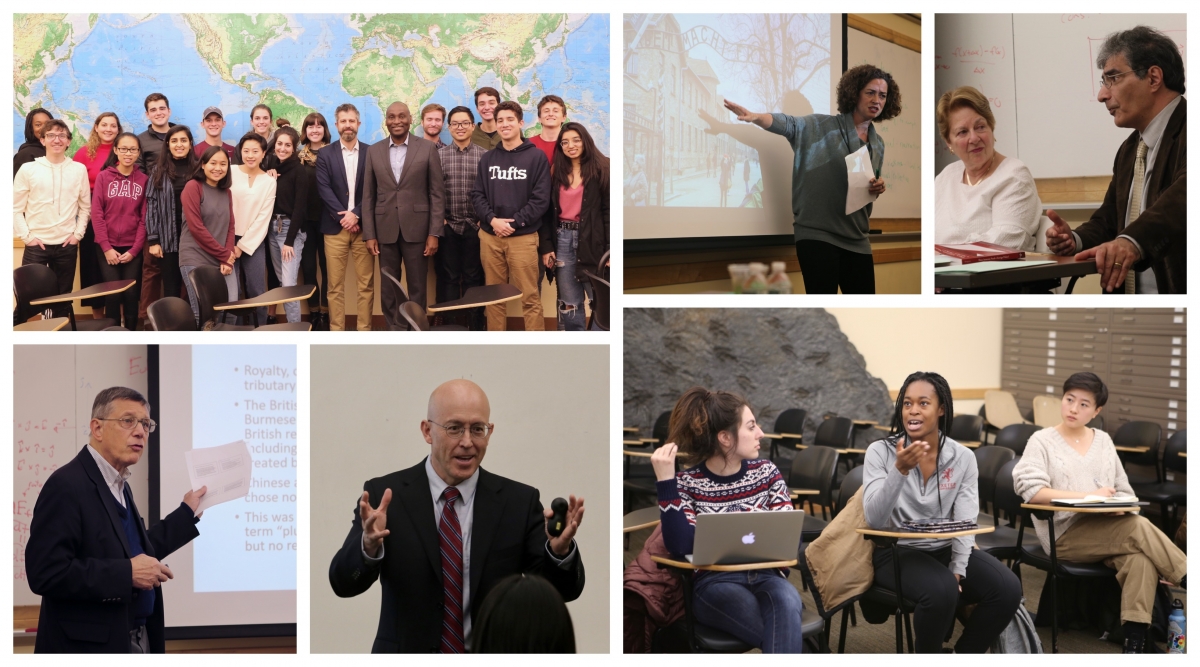EPIIC 2019-2020: Preventing Genocide and Mass Atrocities

Over 100 million people were victims of genocide and mass killings in the 20th century.
Since the Holocaust, we have often repeated “never again”, but too often the world has failed to prevent genocidal violence, making “never again” an empty slogan. The ongoing conflicts in Syria and Myanmar have ensured that genocide and mass atrocities are once again headline news.
Why do people commit genocide and kill in large numbers? How do they commit mass atrocities? What can be done to prevent and halt such conscience-shocking atrocities?
The 2019-2020 EPIIC Colloquium spent the fall semester examining the historical, political, economic and social causes of genocide and mass killings. Nineteen dedicated students – bringing perspectives from the U.S., China, India, Myanmar and Spain – have studied theories of genocide as well as empirical cases, including North America, Namibia, Armenia, Germany, Cambodia, Rwanda, Bosnia, Sudan, Libya, Syria, and Myanmar. The course has asked students to assess how the international community can prevent genocide and mass atrocities by analyzing the role of international courts and ad hoc tribunals; the development of norms such as the Responsibility to Protect; the role of the United Nations; and the responses of regional institutions such as the European Union and the African Union.
Nineteen guest lecturers shared their thinking and experiences with the students:
- Alex Alvarez, Professor of Criminal Justice and Criminology, Norther Arizona University; Author, Native America and the Question of Genocide
- Wa'el Alzayat, CEO of Emgage Foundation, a national civic education and engagement grassroots organization for Muslim Americans
- Anthony Clark Arend, Professor of Government and Foreign Service, Georgetown University
- Joyce Barsam, Vice President, Tavitian Foundation
- John D. Ciorciari, Associate Professor of public policy and Director, International Policy Center, Ford School, University of Michigan
- Steve Cohen, Senior Lecturer, Department of Education, Tufts University
- Bridget Conley, Research Director, World Peace Foundation; Associate Research Professor, The Fletcher School of Law and Diplomacy, Tufts University
- Tom Dannenbaum, Assistant Professor of international law, The Fletcher School of Law and Diplomacy, Tufts University
- David Dapice, Senior Economist, Vietnam and Myanmar Program, Ash Center for Democratic Governance and Innovation, Kennedy School of Government, Harvard University
- Sol Gittleman, Alice and Nathan Gantcher University Professor, Emeritus, and former Provost, Tufts University
- Katharina von Hammerstein, Professor of German Studies, University of Connecticut, Storrs
- James Meernik, Regents Professor of Political Science and Director of the Castleberry Peace Institute, University of North Texas
- Devin Pendas, Associate Professor and the Director of Graduate Studies, Boston College
- Ambassador Rouben Shougarian, The Fletcher School of Law and Diplomacy, Tufts University; Armenia’s first Ambassador to the United States
- Ernesto Verdeja, Professor of Political Science and at the Kroc Institute for International Peace Studies, University of Notre Dame; Author, Unchopping a Tree: Reconciliation in the Aftermath of Political Violence
- James Siguru Wahutu, Assistant Professor of Media, Culture, and Communication, New York University Department
- Lawrence Woocher, Research Director for the Simon-Skjodt Center for the Prevention of Genocide, U.S. Holocaust Memorial Museum
At the weekend immersion, the class was joined by two EPIIC alumni as the guest lecturers: Rachel Brown (EPIIC’08), founder of OverZero, and Nick Birnback (EPIIC’91 and ’92), Chief of Strategic Communication for the United Nations Department of Peacekeeping.
The students are now preparing to put their learning into action, as they plan the 35th Annual Norris and Margery Bendetson EPIIC International Symposium for March 26-28, 2020, along with the 29th annual Inquiry simulation, this year on the Rohingya crisis, and other events throughout the semester.
